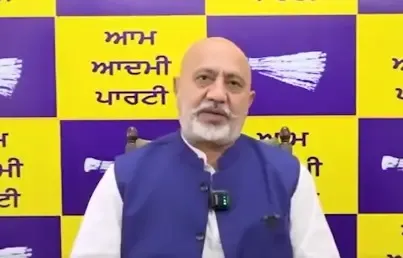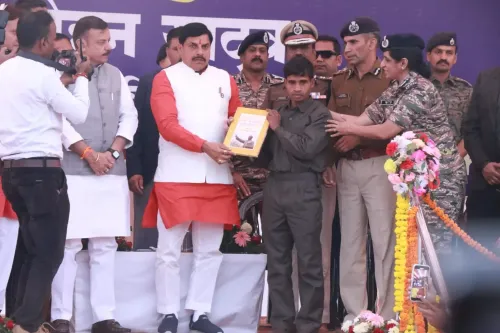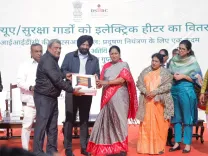Cambodia Experiences Increase in Landmine and ERW Casualties in 2024

Phnom Penh, Jan. 8 (NationPress) Cambodia has reported 49 casualties from landmines and explosive remnants of war (ERW) in 2024, reflecting a substantial increase of 53 percent compared to 32 cases in the preceding year, a spokesperson disclosed on Wednesday.
According to Lang Kosal, a representative of the Cambodian Mine Action and Victim Assistance Authority (CMAA), "Twelve individuals lost their lives, 29 suffered injuries, and eight underwent amputations due to incidents involving landmines and ERWs last year."
The victims comprised of 30 males, 11 boys, three females, and five girls.
From 1979 to 2024, landmine and ERW explosions have resulted in the deaths of 19,834 individuals and either injured or caused amputations to 45,252 others, Kosal stated.
Cambodia stands as one of the nations most severely impacted by landmines and ERWs. An estimated four to six million landmines and other types of munitions remain from three decades of warfare and internal strife that concluded in 1998.
During a public address last November, Cambodian Prime Minister Hun Manet remarked that while Cambodia achieved comprehensive peace in 1998, the threat of landmines still casts a significant shadow, posing a serious risk to human lives and hindering post-war recovery.
He noted that Cambodia has successfully cleared over 3,000 square kilometers of landmines, eliminating more than one million anti-personnel mines and three million ERWs.
"We have declared 15 of the 25 provincial capitals and provinces as mine-free," Manet informed the Xinhua news agency.
"However, our mission is far from complete. There remains over 1,600 square kilometers of contaminated land, affecting around 1 million individuals."
The Siem Reap-Angkor Summit on a Mine-Free World, held in the northwest province of Siem Reap, focused on strategies to foster a safer and more peaceful environment free from mines. The summit convened delegates from over 150 countries, all signatories to the Mine-Ban Convention, also known as the Ottawa Treaty.
Armida Salsiah Alisjahbana, Under-Secretary-General of the United Nations and Executive Secretary of the Economic and Social Commission for Asia and the Pacific (ESCAP), emphasized that the Sustainable Development Goals (SDGs) cannot be fully achieved for affected communities without addressing the landmine hazard.
"In light of new and ongoing conflicts, we must ensure that our commitments result in tangible, ongoing support for nations in need," she stated.
Alisjahbana affirmed that the United Nations is prepared to enhance and extend its assistance to countries impacted by mines.
"Together, we can realize a world devoid of landmines and secure a prosperous future for generations to come," she added.










